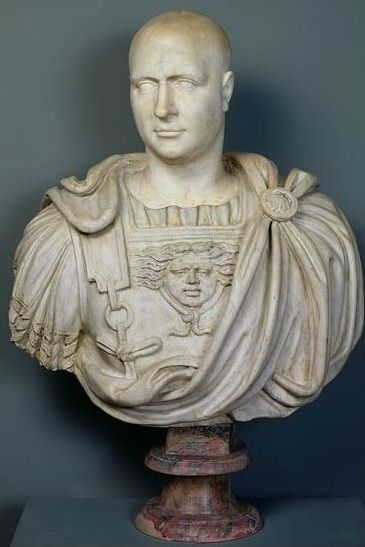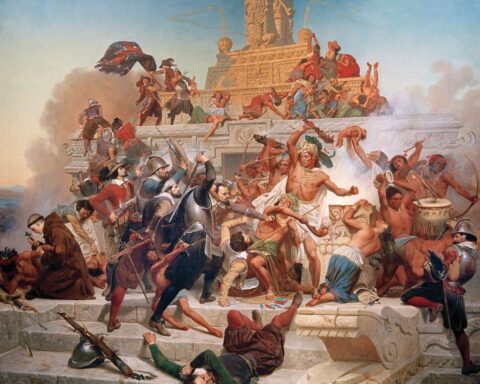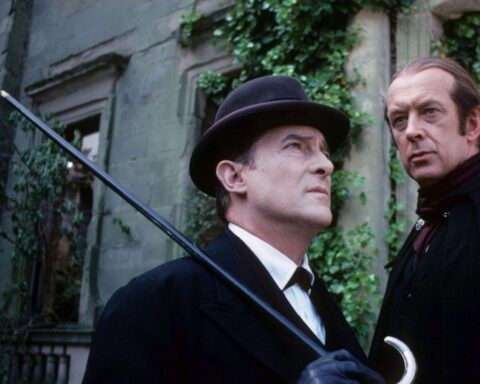Chris Hedges exemplifies the class system in America…in a Good Way
I used to read a website run by the late Gary North. He was not perfect. There are more than a few intellectual and theological areas where I disagreed with his conclusions. Nevertheless, his scholarship opened doors to me where I would have otherwise remained ignorant. He posted a 3 hour C-SPAN2 video interview of author Chris Hedges in 2012. I was fascinated that, although I’m not as liberal in my politics as he, we shared a lot of the same views of the Corporate State. Perhaps that is the Horseshoe Theory of political science coming to the fore.
Here is the video: Chris Hedges on C-SPAN
Why is Chris Hedges so well-read? What connections or better academic upbringing allowed him to go to Harvard while the best I could do was attend the U.S. Air Force Academy? I believe it is the class system we find ourselves in. Americans like to believe we live in an egalitarian system of pure meritocracy. I argue that we don’t. Sure, some will attain to the higher reaches of society through moxie and guile, but not without at least one thread that connects someone from the upper class to that promising individual of the lower class.
In my own life, I will never forget sitting next a student from Colorado College on a plane back home for break. We struck up a conversation. Students at the Academy generally regarded those at Colorado College with disdain. We thought they had little to offer humanity other than system-challenging ideas. Supporting the status quo was my highest ideal at the time. I was taught that and nothing else. When we started discussing politics, I found myself completely disarmed and unable to mount even a feeble defense of why I supported the system. At the time, I was intellectually unprepared to counter even the most specious of Marxist arguments. Instead, I was dumb-founded. I was wondering how he could come by the knowledge he had while I had never even heard of the authors he was referencing.
I was being equipped to defend it, and I didn’t even know why.
In the years since, the blinders have slowly come off and I’ve often thought about that encounter on the plane. I understand now that I was being trained according to my class and station. I showed enough promise to enter the Management class. I was under no circumstances to even be introduced to the Ruling class of government officials, artists, and thought leaders. I was being taught to follow orders, not question them. My class rank was to be enmeshed in the military/corporate system through work, debt, and education. I served as a technocrat project manager. My peer at Colorado College was obviously learning something very different. He may not have been groomed to enter the Ruling class, but he was certainly being equipped to challenge it whereas I was being equipped to defend it, and I didn’t even know why.
I never had a mentor come to me and put his arm around me when I was young. I was never introduced to some of the greater works of philosophy or economics or literature because few in my family had been introduced to them in their lives. How could they teach me what they didn’t know themselves?
I was given a spiritual heritage for which I am grateful. Beyond that, I was left to my own path with little direction. Why? Because my family was in a different class than a Mitt Romney or a Chris Hedges or a Mark Zuckerberg or a Bill Gates. (As a telling rubric, ask yourself who among your friends has a child named Mitt or Newt or Tip? Those are Elitist names for the Ruling class.) And I didn’t show the intellectual promise of a Sergey Brin or a Larry Page. Therefore, I didn’t go to Stanford. I must have shown some sort of promise because I managed to snag that scholarship from the U.S. Government. And that’s good. I was able to get my “education” knocked out. But I know now that it was more indoctrination than education. The alternative was to remain in the Working class, from which I was plucked.
What is my answer? Education is the answer, but not within the current system. The current system sorts people by class based on familial birth. Those in the north east from “establishment” families are going to the Ivy League, period. It doesn’t matter that there are hundreds of thousands of intellectually brighter students out there. The meritocracy is limited. Instead, I argue that with the advent of the Internet, we now have the tools to effect a real education of many millions of people. The opportunities for autodidactic education are limited only by the time the individual has to pursue them.
Education will eventually lead to the withdrawal of consent to our current paradigms. When enough people truly withdraw their consent, we will have change. It worked for Gandhi. It worked for the Civil Rights movement. It will work eventually here in America and in other Western nations.
In the meantime, we all need to free ourselves from the corporate serfdom in which we now find ourselves fully awake. Not everyone is awake to the Matrix in which we live. I know that it doesn’t even occur to my co-workers to question their support of the products our companies produce. They are neither trained nor expected to make moral decisions in their work. Neither was I.
The best way for us to find freedom is in financial independence or at least lessen our dependence on their systems. When people are independent, they are more able to speak their minds. When enough people can actually speak and then act according to their free conscience, a flood of change will finally be unleashed.









Aren’t all societies hierarchical though? There will always be a ruling class. The problem arises when that class is no longer benevolent towards the lower classes and instead looks at the lower classes with disdain. This was highlighted when Meghan Markle abandoned the Royal family because it required too much discipline. The Royal family may have high status but at the same time they are in a sense prisoners of the people. They take their station in society seriously and the people generally respect and love them for it.
Sure, all societies are hierarchical. The important question is what is the hierarchy based upon?